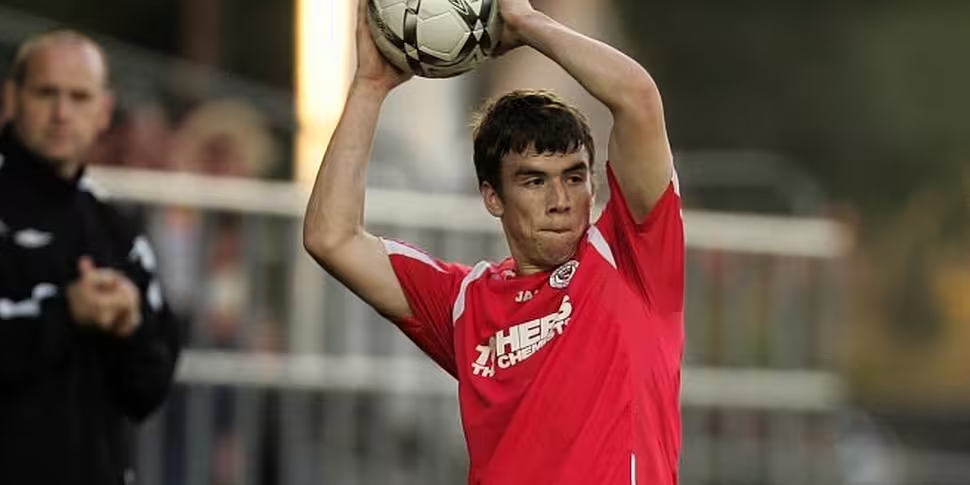You have as much chance being hit by a meteorite on your walk home as you do making it as a Premier League footballer. A 0.012% chance.
When numbers get into the ridiculous minuet figures it becomes almost impossible to comprehend how small that actually is.
Basically, around 180 out of 1.5 million youth players actually make it through Premier League academies and into the first team squad.
The margin of error is getting smaller as the number of competition increases while more and more teenagers become not much more than cogs in the wheel of youth academies.
Football-author Michael Calvin appeared on Off the ball on Monday night, speaking about the documentary ‘No Hunger in Paradise’, based on his book which went inside the English youth system.
In the documentary, Calvin puts faces to the players discarded by the system and interviews those involved in youth academies across England, but it was his interview with one club that got rid of their youth system that highlighted the problem with underage systems at the minute.
Brentford FC ditched their youth academy last year in favour of developing in Premier League outcasts.
“What I would occasionally would hear from coaches at our academy and other academies and they know fine well that there are some players in there, who are never going to be professional footballers, and rather than taking that and saying the moral, ethical thing to do is to tell that player that he needs to focus on another path for his life and his future - they’re kept on.”, Co-Director of football at Brentford explains.
“And they’re kept on because there are other players in that academy who need players to play with, to train with. They’re looking to keep on two or three and the rest are thrown by the wayside.”
“I think if you compare it to a bank, an investment bank, and they were developing children to make money from them, which is ultimately the whole point to develop players to be sold for profit.. I think serious questions would be asked, but football seems to operate by some different rules”.
In fairness, banks and investment banks aren’t exactly holders of a moral compass in which to set any standards by.
That doesn’t take away from the main point he is making.
Sometimes academies can be glorified as the heart and soul of the football club - Manchester United as an example.
United have always been praised for the strengths of their academy, and do hold an impressive record; every year for the past 80 years, there has been at least one homegrown player in every United squad.
This is more than many Premier League clubs, but should it not be more?
Manchester City has spent £2 million in London alone developing players, they have more scouts in Huddersfield, than Huddersfield Town.
Yet, just four of their youth team players have graduated into the professional team under Pep Guardiola. Why?
Taking risks on your own players is difficult in the current money war that is taking place among the top clubs. If anything though, history shows that it can be more than beneficial.
Marcus Rashford, Harry Kane, and Andreas Christiansen are recent proof of how you can benefit from homegrown talent.
The class of 92 show another. Not only were they extraordinary successful, it’s twenty-five bloody years later and United are still making money off their brand.
This doesn’t just have an effect on the talent going into the systems from England, it also has a direct effect on the Irish players looking to make it over there.
The percentage of Irish players has been dropping on a yearly basis, and the thought of sending a 13-year-old over with such slim chances of success can’t be as glamorous a thought as it once was.
Step forward our national league - an option which could become more attractive for younger players who have their head screwed on.
Playing in the league of Ireland might not bring about the move to Old Trafford or Anfield as it may once have but, for the best talents, it can provide a platform to mature their skills, provide an income and keep them in the view of English clubs like Brentford or Preston who are now looking for the ready-made player.
Some may see that as a lack of ambition, it’s not. It’s pragmatism. The glory days of Ireland producing players like Roy Keane are over and they’re not coming back in the ruthless Premier League era.
So why not aim for a career in the Championship? Is it so insulting to think of that as not only a viable option but also a smart one?
Would we not prefer to see more of our players going over at the age of 22/23 and actually making a career for themselves at an - albeit, lower standard than some of our previous players - than see our teenagers flood back into the league at that age having been discarded by the academies?
That for me makes no sense, and the chances of Irish football progressing under that model are almost as low as the chances of being hit by a meteorite.













